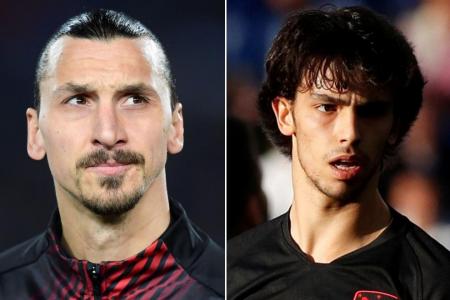Richard Buxton: Hasty league restarts pose injury concerns
It doesn't help that players will be involved in more games over a shorter time
by Richard Buxton

Football's battle with its own mortality is about to be taken to a new level by the coronavirus.
Incredibly well-paid players have often appeared detached from the problems facing the average Joe, but are now more susceptible to Covid-19's impact than those that watch them.
The Bundesliga has sought to lead the way for the Beautiful Game out of the global pandemic, yet is similarly exposing the flaws behind making a long-awaited return to competitive action.
Eight players were struck by injury in the German top flight's opening six fixtures on May 16, a number which brought the average rate of affliction from 0.27 per game to an alarming 0.88.
Borussia Dortmund's teen sensation Giovanni Reyna succumbed to a knock before an expected first league start in their Revierderby clash with Schalke 04.
His replacement Thorgan Hazard also went off in the final 10 minutes of the 4-0 win at Signal Iduna Park with a similar problem.
As many of their European counterparts seek to resume a condensed schedule, fears over the physical toll of players after spending almost two months housebound are finally being raised.
Torino president Urbano Cairo has expressed concerns that those on the front line of Serie A's own comeback bid will be more prone to injuries.
One has already been afflicted in AC Milan's veteran striker Zlatan Ibrahimovic, who suffered a an injury in his right leg.
It seems even self-proclaimed "lions" cannot escape the perils of a post Covid-19 hangover.
Juventus winger Douglas Costa, 29, recently admitted that he has considered retiring due to persistent muscular injuries which have restricted him to just 90 club outings in the last three seasons.
A relapse in the fraught current climate may finally force the Brazil international's hand.
Elsewhere on the continent, the picture is equally bleak, with Atletico Madrid forward Joao Felix sustained knee ligament damage in a training session.
Across the Spanish capital, his Real counterpart Luka Jovic returned from lockdown with an as yet unexplained fractured heel.
FINDINGS
Allowing clubs to make a maximum of five substitutes per match do not go far enough in ensuring that players are protected against the risks, which a desperation to resume will invariably bring as leagues attempt to condense the three months lost into a limited time frame.
Research by Zone7, an artificial intelligence company that specialises in athlete performance, shows that players' chances of injury will be increased by 25 per cent if they are forced to undertake a gruelling schedule of eight games in a 30-day window to clear the fixture backlog.
Those findings are unlikely to find favour with some English Premier League players ahead of plans to reintroduce close-contact training later this week in the next phase of "Project Restart".
Watford captain Troy Deeney and Chelsea midfielder N'Golo Kante have already set out their stalls.
Others are likely to follow the pair's stance by refusing to take part due to the lack of cast-iron guarantees that their health and well-being will not be impacted by rushing back to work.
Uefa has shown willingness to extend its original May 25 deadline for European leagues to inform the governing body of their respective restart plans.
Hence, the leeway provides a degree of flexibility for officials to agree on a more realistic, if slightly staggered, return date that does not needlessly dilute its on-field quality.
A six-week period, advocated by Newcastle United manager Steve Bruce, to bring players back up to speed would allow the EPL and their peers to preserve the benchmark which made them such an attractive prospect for fans and commercial partners alike in the previous two decades.
If players are sacrificed at the altar of short-termism, football's money men will pay the ultimate price.